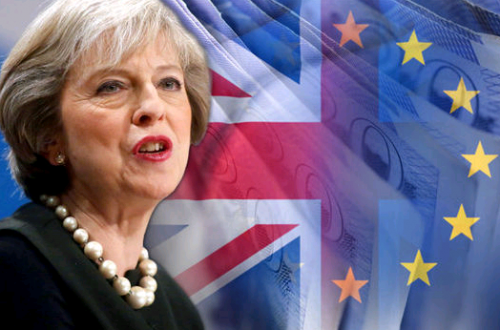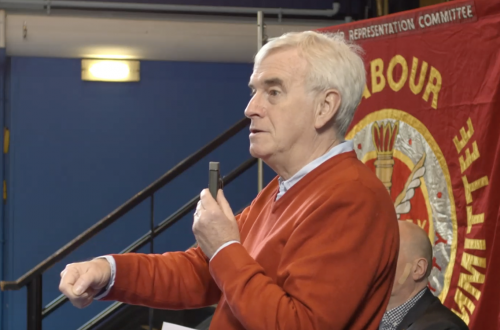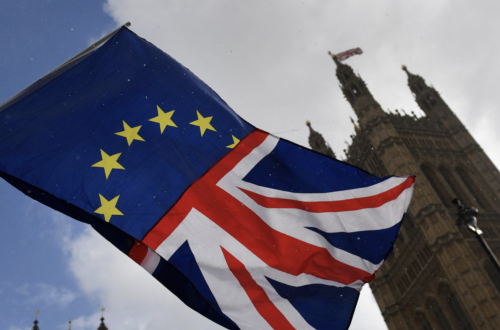This is a cross-post by James Snell
The Enlightenment is under attack. The very essence of modernity – and the very engine which drove much of what we take for granted from the present – is under threat. And not just from theocrats and fascists and the usual assortment of nihilistic individuals with a death wish, one of whom was narrowly prevented last week from massacring innocents on a train travelling from Amsterdam to Paris. Opposition to Enlightenment values is widespread, diverse – and it is growing.
Scientific enquiry, philosophical revolution, and the formation of many modern political concepts including universal rights – all of these are being undermined. And these attacks are coming from a varied array of opponents. Some – these are the most virulent, and are therefore worth mentioning first – are positively opposed to civilisation itself. They do not just despise those values we associate with the Enlightenment; they also hate the West, which their warped and perverse worldview holds to be responsible for this and other outrages. Theirs is an ideology in which beheading aid workers and archaeologists can be justified from the pulpit. Theirs is a worldview which holds that the very victims themselves are responsible for any murder and mayhem inflicted upon the innocent. They must be confronted and opposed; but they are hardly alone.
Allied with these deeply undesirable partners – in deed if not in intent – are a distressing number of what some have taken to calling the ‘Neo-Left’. Crudely put, these are the sorts of people, I am reliably informed, who derive immense pleasure from questioning the value of such things as scientific knowledge and pointing instead to pseudo-science. Homeopaths, thePrince of Wales, and an apparent succession of Health Secretaries, as well as many less influential but increasingly vocal individuals – these can be taken to represent an integral part of this loose confederation.
Some opponents of Enlightenment values have more substantive criticisms to make (and I will return to them), but it pays to focus for a moment on the two examples thus far presented: the fanatical theocrat, and the denizen of the ‘Neo-Left’. Both of them are vastly different, but their aims and shared targets do not seem dramatically divergent after all. Many readers, I hope, will experience a frisson of something when confronted with that opposition.
Returning to the question at hand is essential; otherwise, debate would be conducted entirely on grounds of the stereotype and nothing more.
This question of whether we should defend the Enlightenment can prompt semi-serious sequels. Why defend the Renaissance? Why defend the Industrial Revolution? Both are facts of history; and perhaps this status alone is enough to insulate them from a certain type of criticism. (The fact that they were both – to my mind, at least – greatly positive events has little impact on this historicity.) But the Enlightenment does attract contemporary criticism in a way other intellectual advances of the past rarely do. This period of intellectual progression is held to condone, even to have created, colonialism, racism, sexism; it is held to have prioritised a cold, rational breed of intellectual, one who is blind to emotion and that most contemporary of scholarly criteria: ‘lived experience’.
There is some merit to this analysis. We must be ever sensitive to the fact that ideas and intellectual currents cannot be divorced from the historical situations which led to their formation. Ideas, in other words, are not entirely neutral, and can never be entirely separated from context. As E. H. Carr wrote in his seminal work of historiography What Is History?, even historians, these great chroniclers of the eddies and flows of historical currents, cannot avoid the fact that they too are figures acting within history; they must take their place in what he calls history’s ‘moving procession’. This means that Enlightenment values must be seen as a product of their times and judged accordingly.
And some of what is said in criticism remains true: Thomas Jefferson did own slaves; there is astrong and healthy debate as to whether David Hume, that paragon of Enlightenment philosophy, exhibited what we would now consider to be racist views. But these observations do not in and of themselves discount the work of those two men; and nor, it must be said, does the fact that they were men – and men of a particularly pallid complexion at that.
This, it seems to me, does not invalidate their ideas – some of which are scornfully referred toas ‘the Enlightenment project’ by an apparently growing swell of criticism. Rather, it provides a necessary and ultimately pertinent lesson in the fallibility of individuals, and the fact that historical figures cannot be disentangled from the context in which they lived. To modern ears racial bigotry cannot be dismissed as a mere foible – and that is of course right – but its presence in the worldview of some of humanity’s greatest thinkers could be seen as a humanising trait: it prevents the very best from achieving apotheosis; and that, perhaps, is useful and even uplifting when considering our own lives. People can be both great figures of history and morally questionable individuals. That is – like it or not – the reality of our existence, and it should not be used to detract from some of the finest work made in the intellectual advancement of mankind.
With that in mind, therefore, it is worth examining the values ascribed to the Enlightenment. These advances represent a formidable achievement: Increasing legal rights for many; intellectual curiosity on an almost industrial scale; increasing religious freedoms, culminating in the First Amendment to the American Constitution, which grants both freedom of and freedom from religion. All of this has to be worth something. Though some of it may now come down to little more than ‘common sense’ (if one steals the phrase of Thomas Paine), it would be foolish to disregard – and genuinely damaging to denigrate – such a pivotal event in the intellectual, cultural, philosophical and political development of humanity. No matter the opposition – and a fierce, varied coalition is drawing itself up – the Enlightenment is something to be proud of, something to aspire to, and – if it comes to that – something deeply worthy of defence.


